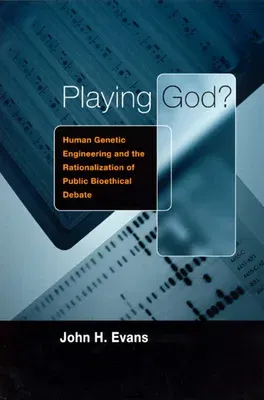John H Evans
(Author)Playing God?: Human Genetic Engineering and the Rationalization of Public Bioethical DebatePaperback, 1 February 2002

Qty
1
Turbo
Ships in 2 - 3 days
In Stock
Free Delivery
Cash on Delivery
15 Days
Free Returns
Secure Checkout

Part of Series
Morality and Society
Part of Series
Morality and Society (Paperback)
Print Length
312 pages
Language
English
Publisher
University of Chicago Press
Date Published
1 Feb 2002
ISBN-10
0226222624
ISBN-13
9780226222622
Description
Product Details
Author:
Book Format:
Paperback
Country of Origin:
US
Date Published:
1 February 2002
Dimensions:
22.71 x
15.19 x
1.78 cm
ISBN-10:
0226222624
ISBN-13:
9780226222622
Language:
English
Location:
Chicago, IL
Pages:
312
Publisher:
Weight:
417.3 gm